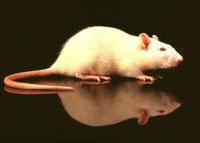 | |
 |

Animal Models |

|


 |
|
 |
|||||||||||||

|
|||||||||||||||
|
|
|||||||||||||||
 |
 |
 |
|||||||||||||
 | ||||||||||
The DDC has a strong interest in the pharmacology of cognitive processes involved in e.g. addiction behavior and ADHD. To that end, the group of Schoffelmeer studies e.g. the effects of peripheral and intracerebral administration of compounds in rats and mice using a variety of behavioral paradigms to study psychomotor activity (video tracking), reinforcement learning and motivation (i.v. and oral drug self-administration, compulsive drug-seeking), attention and impulsivity (5-choice serial reaction time task, delayed reward task) and anxiety (elevated plus-maze, Vogel conflict, forced swimming, social defeat). Selected publications Jacobs EH, Smit AB, de Vries TJ and ANM Schoffelmeer (2003) Neuroadaptive effects of active versus passive drug administration in addiction research. Trends Pharmacol Sci 24: 566-573. Jacobs EH, S Spijker, CW Verhoog, K Kamprath, TJ De Vries, AB Smit and ANM Schoffelmeer (2002) Active heroin administration induces specific genomic responses in the nucleus accumbens shell. FASEB J 16: 1961-1963. Schoffelmeer ANM, TJ De Vries, G Wardeh, M Van de Ven and LJMJ Vanderschuren (2002) Psychostimulant-induced behavioral sensitization depends on nicotinic receptor activation. J Neurosci 22: 3269-3276. De Vries TJ and TS Shippenberg (2002) Neural systems underlying opiate addiction. J Neurosci 22: 3321-3325. Homberg JR, M van den Akker, HS Raaso, G Wardeh, R Binnekade, ANM Schoffelmeer and TJ De Vries (2002) Enhanced motivation to self-administer cocaine is predicted by self-grooming behaviour and relates to dopamine release in the medial prefrontal cortex and amygdala. Eur J Neurosci 15: 1542-1550. De Vries TJ, Y Shaham, JE Homberg, H Crombag, K Schuurman, J Dieben, LJMJ Vanderschuren and ANM Schoffelmeer (2001) A cannabinoid mechanism in relapse to cocaine-seeking. Nature Medicine 7: 1151-1154. Vanderschuren LJMJ, ED Schmidt, TJ De Vries, CAP van Moorsel, FJH Tilders and ANM Schoffelmeer (1999). A single exposure to amphetamine is sufficient to induce long-term behavioral, neuroendocrine and neurochemical sensitization in rats. J Neurosci 19: 9579-9586. |